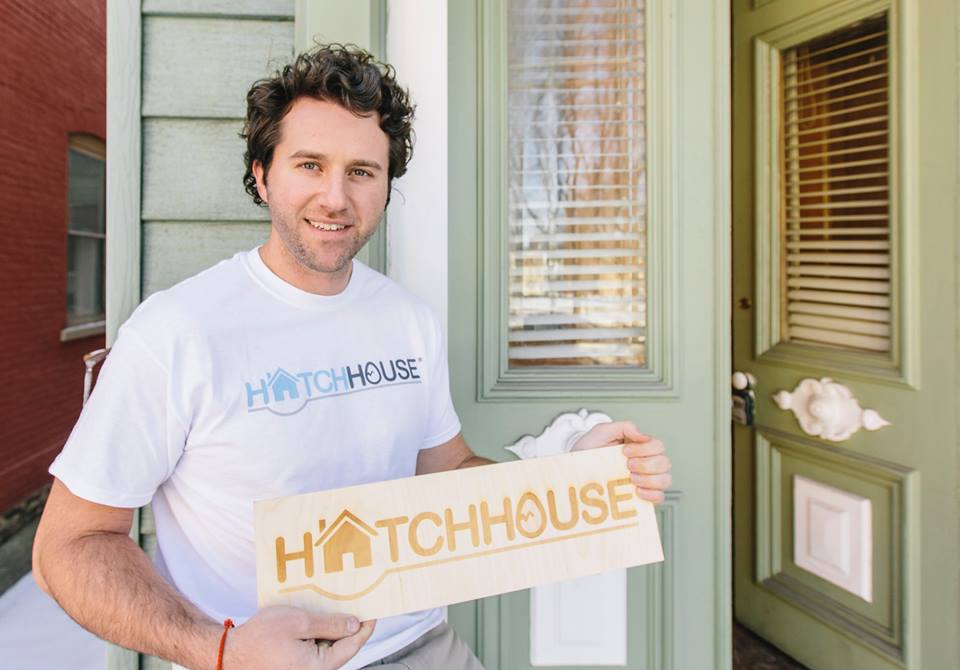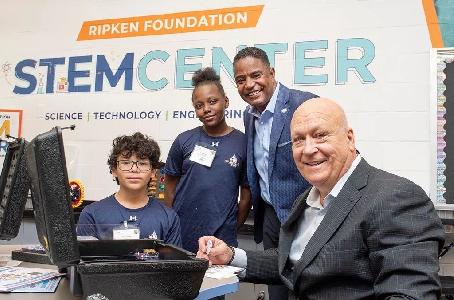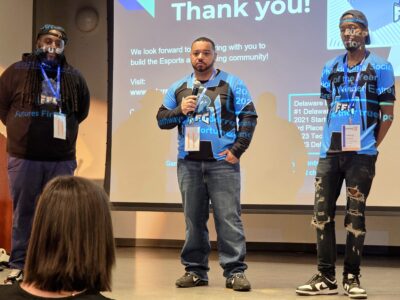It was about two and a half years ago that entrepreneur Steve Boerner talked with then–Technical.ly reporter Tony Abraham about the imminent-at-the-time Wilmington live/work incubator Hatch House, and why its Bethlehem, Pa., location has a 3D printer. (The answer: For young founders to make prototypes, of course.)
It was August 2015, and the incubator was set to open on 103 W. 7th St. in the fall. Fall 2015 came and went, the holidays flew by and winter set in without an opening. The W. 7th St. location sat vacant, empty of entrepreneurs and 3D printers, for years.
Boerner himself hasn’t gone anywhere. He’s about to launch an “online ecosystem” for Delaware entrepreneurs called DelawareIQ — no relation to Hatch House (ostensibly, at least).
So, what happened?
Will there ever be a Hatch House live-in incubator in Wilmington?
The short answer: No. Hatch House in Delaware is no more.
It took some work to get this story. It went from a routine startup profile to a case study of what not to do when dealing with the press.
Things started to get weird after our editor, Zack Seward, asked me for more information in my DelawareIQ piece about what happened to Hatch House, which had been covered pretty extensively by Technical.ly before I came on as Delaware lead reporter. Simple enough. There was more to the story, Seward said. After all, we can’t just write about a new project as if the old one never happened. Thing is, that’s exactly what Boerner asked us to do: don’t mention Hatch House at all.
Well, that response turned a routine post into a small mystery: What did it mean? What was he hiding? If he wouldn’t say, we’d have to ask around. Google everything we could find. Look up public records. That’s the job.
Eventually, after learning that we were investigating Hatch House, Boerner came back and opened up with the whole story.
There was no smoking gun, no inconsistency, no sign of maliciously shady intent. It was just a case of trying to control the narrative gone awry.
So, before we get into that story, here’s a note to startups looking for press coverage: You’re free to frame your brand any way you want. You’re free to keep some things off the record. But if you tell us not to follow up on why something we’ve covered before has seemingly disappeared, we’re following up on it one way or another. We’re press, not PR. Our priority is to inform the community. That’s how we all get better.
So, what did happen to Hatch House?
Hatch House went up in smoke sometime in 2017 when, according to Boerner, an investor in the W. 7th St. property decided they wanted the renovation to make the property entirely residential, veering away from the live/work concept of Hatch House.
But to see where the shift away from the original Hatch House concept started, you have to go back to 2016, when the project was put on hold because Boerner wanted it to align more closely with the Delaware Business Roundtable’s growth agenda, which examined the state’s strengths and weaknesses:
Delaware Growth Agenda examined state's economic strengths and weaknesses. See full report: https://t.co/gQlthuvOgf pic.twitter.com/AQ5A5CzU5G
— Del Biz Roundtable (@DelawareBRT) July 25, 2016
Weaknesses included “lack of private sector engagement” and “underdeveloped entrepreneurial culture.” Former Technical.ly Delaware reporter Rana Fayez wrote at the time:
There has also been a call to move away from strictly calling [Hatch House] a “live/work” space, because the term no longer describes what the organization does. Boerner refers to it now as, “A growing network of startup accelerators in partnership with higher education.”
In early 2017, Boerner participated in the first round of the Spark Challenge, an venture incubator that has worked with startups including Thimble, COAKT, DEAct and Levitea.
“I realized they were already doing what we were trying to do,” Boerner said of the incubator created by SmartInvest. “I didn’t want to be in competition with them.”
At that point, Hatch House had run a pilot of its live/work incubator at the University of Delaware, with apartments on the upper floor of the the Horn building, housing student entrepreneurs, including Jim Jannuzzio, founder of Bookbandit. It ended after its pilot run, and sights were set on Wilmington, where Boerner struck out on his own to open a downtown Hatch House.
Whether it was in part because of issues with real estate investors or simply a pivot, Boerner said he decided that another incubator wasn’t what the city needed. What the city needed was a way to connect its entrepreneurs digitally, like an Angie’s List for entrepreneurs. He’d been working on ecosystem platform called HeliumIQ, designed to essentially supercharge economic development in regions across the U.S. That evolved into the aforementioned DelawareIQ, a free platform that applies the concept to the First State.
What is DelawareIQ?
“We’ve aggregated all of the entrepreneurial resources and service providers in the region,” said Boerner. “That kind of ecosystem mapping was one of the top priorities that came out of the Delaware Growth Agenda.”
To put it simply, DelawareIQ is hyperlocalized software that will digitally connect entrepreneurs, students, business owners, employers, investors and service providers. Getting everyone on the same page, the thinking goes, will surface more opportunities for those involved and boost the community to new heights.
Many of the same investors who supported Hatch House stayed on to help fund DelawareIQ, including Charlie Horn, founder of the University of Delaware’s Horn Program for Entrepreneurship and chairman of the investment firm 5Lights Group and the SmartStart Delaware Angel Network (part of SmartInvest Ventures).
“It’s a place for the community and managers to collaborate,” Gerry Moan, managing director of SmartStart, said of DelawareIQ. “The big piece here is the shared knowledge of the stuff that normally falls between the cracks, the experiences, the skills sets.”
Some of the other organizations involved with the new project include the New Castle County Chamber of Commerce, M&T Bank, Delaware Sustainable Chemistry Alliance, State of Delaware Economic Development and First State Innovation.
“It’s an important part of solving a significant hurdle in the effort to grow the entrepreneurial economy in the Delaware region,” said Jeff Fetterman of First State Innovation.
“Delaware is fortunate to have hundreds of entities that support entrepreneurs,” Fetterman continued, “but those groups are limited in their effectiveness because they are not sufficiently coordinated with one another.”
Your business, if it’s publicly known, is probably already going to be listed on DelawareIQ, the same way your house is probably listed on Zillow. You would be able to sign on and claim your business and add additional information, Boerner said. The platform is meant to make it easier for freelancers to connect with local businesses, and for startups to find resources, for example.
After two years of research and development, DelawareIQ is set to officially launch on April 10.
If you’re interested in checking it out, you can sign up to test it here.
Before you go...
Please consider supporting Technical.ly to keep our independent journalism strong. Unlike most business-focused media outlets, we don’t have a paywall. Instead, we count on your personal and organizational support.
Join our growing Slack community
Join 5,000 tech professionals and entrepreneurs in our community Slack today!







